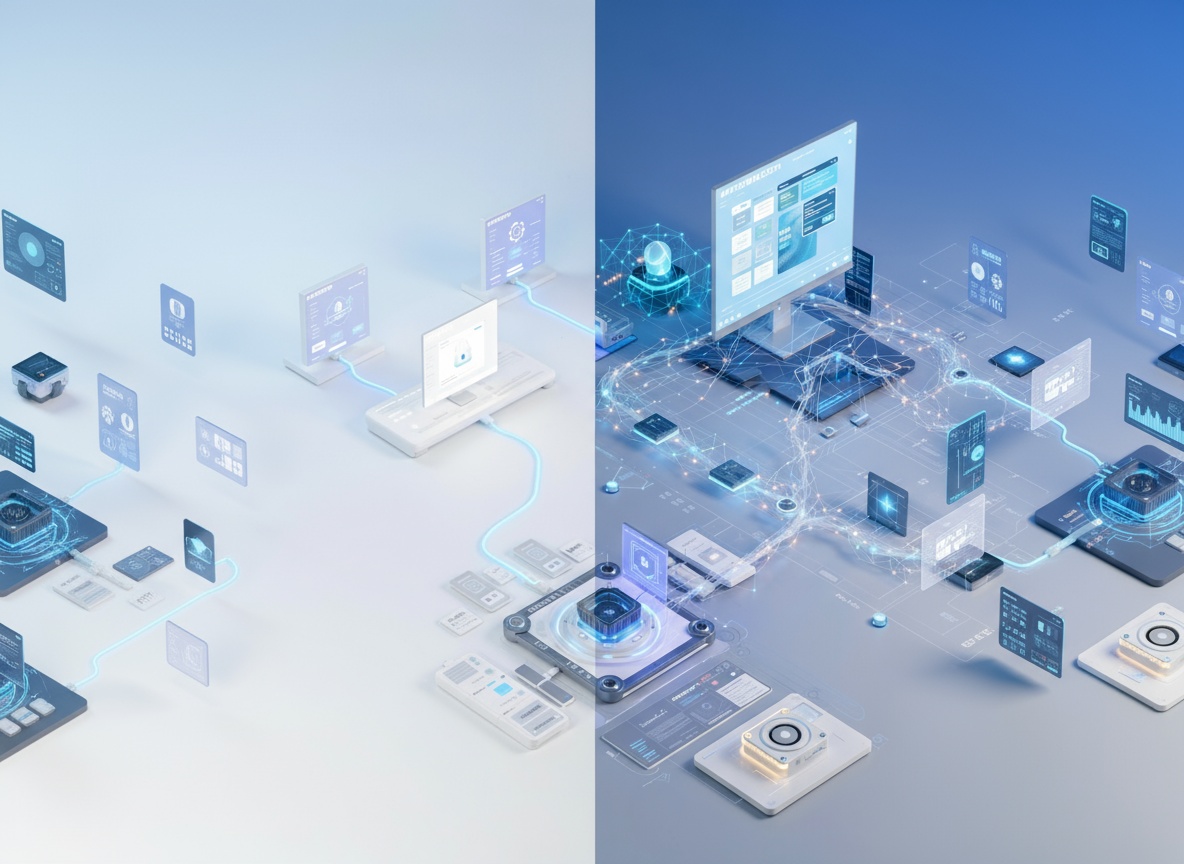Have you ever wondered how your favorite apps seem to work together flawlessly? For example, when you ask ChatGPT to help you with a task, it can easily pull information from different sources. For instance, AI assistants can access your calendar, files, and other tools seamlessly. This is made possible by some really cool technology operating behind the scenes.
Let's start with APIs, which are always reliable
By now, most of us know what APIs are. API stands for Application Programming Interface, and it's the way that different software programs talk to each other. You can think of it like a waiter in a restaurant. You tell the waiter what you want, and they go to the kitchen (another system) and bring it back.
That's an API in action when you click "Login with Google" on a website. The site asks Google, "Is this person who they say they are?" If you give Google permission, it will answer with a yes or no and some basic information.
For many years, APIs have been the internet's backbone. They are dependable, straightforward to understand, and work well for simple tasks. But the present is where things get interesting...
Meet MCP, the New Kid on the Block
Model Context Protocol, or MCP, is a protocol that was made just for the time we live in now. APIs are excellent for simple back-and-forth conversations, but MCP was made to do something much more complicated: give AI models safe access to tools and resources outside of the model.
This is what you need to know: AI assistants like Claude, ChatGPT, or custom AI tools often need to use more than one resource at a time. They might need to read your files, look through your database, search the web, and update your calendar all in one conversation. APIs that are more traditional weren't really made for this kind of planned, context-aware interaction.
MCP makes it possible for AI models to safely connect to and interact with outside systems in a way that is consistent throughout the whole conversation. It's like giving your AI helper a universal translator and a badge that lets them in anywhere.
We're already looking into how MCP can change the way businesses use AI at Fuse Digital. This isn't just talk; it's happening right now, and we're making sure our clients stay ahead of the game. Visit our AI Solutions page to see how we're using these new technologies.
So what's the big difference?
This is how you should think about it: APIs are like having different phone numbers for each service you use. You call the calendar service for appointments, the email service for messages, and the weather service for weather. Every call is its own thing.
MCP is a smart assistant that can make calls, remember what was said, and work with others to get things done faster. It's made just for AI systems that need to keep track of what's going on and use more than one resource at the same time.
Why Should You Care?
This is more important than you might think if you own a business. We're getting closer to a world where AI helpers will do more and more difficult jobs for us. Companies that learn about and use these new rules early on will have a big edge.
APIs made it possible for us to connect our digital worlds, but MCP is making it possible for AI to interact with us in a way that is truly intelligent and aware of the situation. It's the difference between having many separate tools and having a smart system that can use them all together faster without any problems.
The Bottom Line
In today's tech stack, both APIs and MCP have their uses. APIs aren't going anywhere; they're still great for many things. But MCP is the next step, made just for the future with AI.
Are you ready to use AI technology to make your business ready for the future? Fuse Digital knows how to help you use these new technologies in a smart way. We don't just follow trends; we help you put solutions into action that will really help your business grow. Let's talk about what your business can do.
